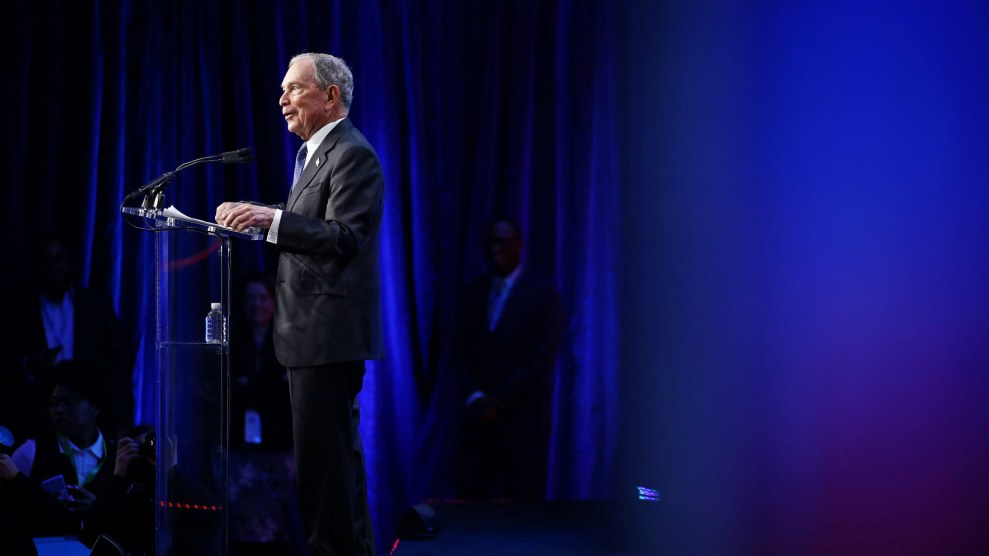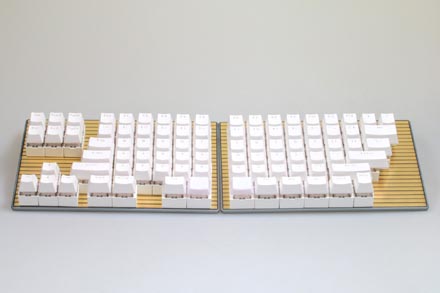"I'm going to make my decision after the last question tonight," Alexander said.
Alexander — unlike the other three swing-vote GOP senators — has avoided showing any hint of where he's leaning. "I'm trying to stay right down the middle," he told CNN.
Responding to Alexander's bipartisanship question in the chamber, Rep. Zoe Lofgren, a California Democrat
who was a staffer during the Nixon impeachment inquiry and a House member in the Clinton impeachment, responded that the Nixon impeachment effort wasn't always bipartisan -- it shifted only at the end, she said -- and that she was disappointed Republicans haven't joined with Democrats up to this point. "You have an opportunity here," she said.
Senate Minority Leader Chuck Schumer, a New York Democrat, followed up the question by asking the House managers to explain how requesting witnesses could be done in a limited fashion. House Intelligence Chairman Adam Schiff, a California Democrat who is the lead impeachment manager, responded by arguing for a one-week period for closed-door depositions and a "limited" time for witness testimony for the trial, an effort to address Republican criticisms that witnesses would lead to endless delays.
Senate Majority Leader Mitch McConnell, a Kentucky Republican, then asked his first question in the two days that senators have queried the House managers and the President's team, giving the defense counsel a chance to respond to the House's assertions about bipartisanship and impeachment.
The trio of questions were a potentially pivotal moment as the Senate
nears a vote Friday to decide the fate of President Donald Trump's impeachment trial -- and whether witnesses like former national security adviser John Bolton will testify.
Senate Republicans are expressing increasing confidence they have the votes to block witnesses on Friday, a scenario that includes Alexander siding with them.
Two Republicans, Sens. Susan Collins of Maine and Mitt Romney of Utah,
appear likely to vote for witnesses, and a third, Sen. Lisa Murkowski of Alaska, may join them.
Alexander, who is close to McConnell, has not tipped his hand.
Beyond those four senators, Democrats are quickly running out of options, as potential GOP crossovers have declared they are voting against witnesses or signaled that's how they are leaning.
During the dinner break, Alexander met with Murkowski. He told CNN that the two aren't coordinating.
"We were just talking," Alexander said, adding that the group of swing senators are "all doing things independently."
"Lisa and I often talk about what we are doing," Alexander said.
Asked where he's leaning, the Tennessee Republican said: "I'm not saying."
Like Wednesday's session, in which more than 90 questions were asked, many of the questions asked on Thursday were lobbed as friendly queries -- Democrats giving the managers the chance to make a point, and Republicans responding with the same tactic for the defense counsel. But key questions were interspersed both from undecided senators and to challenge the opposing side, which led to some illuminating and insightful -- and sometimes less than insightful -- responses.
Murkowski offered a hint at her thinking with a pointed question to the President's counsel, asking about contradiction between the testimony of US Ambassador Gordon Sondland and statements from GOP Sen. Ron Johnson of Wisconsin versusthe reporting about Bolton's book.
"This dispute about material facts weighs in favor of calling additional witnesses with direct knowledge. Why should this body not call Ambassador Bolton?" Murkowski asked.
The Senate is expected to vote Friday on whether to seek witnesses and documents, a vote that will decide if the trial comes to a quick acquittal or extends into an unpredictable phase where the testimony of Bolton, Joe and Hunter Biden and others could be sought.
Question time continues
On Thursday, there were even a handful of bipartisan questions with the senators considered on the fence. Collins and Murkowski joined with Democratic Sens. Joe Manchin of West Virginia and Kyrsten Sinema of Arizona to the President's team: would the President adhere to
the Logan Act and guarantee that private citizens would not be directed to conduct foreign policy unless they have been designated by the government.
Patrick Philbin, a member of Trump's legal team, responded there was nothing wrong with the President directing his personal attorney, Rudy Giuliani, to deal with Ukraine, but he also maintained that the former New York mayor was not conducting any policy with the country.
Another bipartisan question followed not long after from Murkowski and Democratic Sen. Brian Schatz of Hawaii, who asked where was the line between political actions and impeachable conduct.
The House managers often turned their attention to the key Republican senators.
House Judiciary Chairman Jerry Nadler invoked Collins and Murkowski by name to circle back to their question from Wednesday about "mixed motives" with regard to the withholding of US aid and the push for investigations, charging that the defense team's argument was "nonsense" that mixed motives would exonerate the President.
"Once you prove a corrupt act, that's it," Nadler said.
Collins' later asked another question with several Republican colleagues about whether there were legitimate circumstances for a President to ask a foreign government to investigate a US citizen, including a political rival. Schiff answered that question, but the
lead impeachment manager also pivoted back to the same "mixed motives," question, making eye contact with Collins in his response as she took notes.
Schiff made his pitch for the Senate to call witnesses.
"If you have any question about whether the motive was mixed or not mixed, ask John Bolton," he said.
Paul question rejected by Roberts
The Senate trial began Thursday with a quick and quiet ending to a behind-the-scenes fight that simmered throughout the day on Wednesday, as Sen. Rand Paul of Kentucky
pushed to ask a question that would have named the alleged whistleblower. Roberts signaled to senators earlier this week he would not read any questions that included the alleged name of the whistleblower, and GOP leaders tried to come to a resolution with Paul on Wednesday.
McConnell indirectly referenced the dispute at the start of Thursday's session. "We've been respectful of the chief justice's unique position in reading our questions, I want to be able to continue to assure him that that level of consideration for him will continue," McConnell said.
But Paul insisted on asking the question, and he submitted it as the first GOP question. Roberts was handed Paul's tan card and read the question to himself for a moment. "The presiding officer declines to read the question as submitted," Roberts said, moving onto the next question.
Paul went to the Senate television studio right after the question was rejected, and read it there to reporters, which included the alleged name of the whistleblower and asked about connections with a member of Schiff's staff.
Later in the day, a group of Republicans asked another question about the member of Schiff's staff and the alleged whistleblower that named only the committee aide. Roberts read that question.
Schiff responded that he was "appalled" at the attacks on his staff, saying he would not respond to the smears coming from a newspaper article. "Members of this body used to care about the protection of whistleblower identities. They didn't use to gratuitously attack members of committee staff. But now they do," Schiff said.
The President's personal attorney, Jay Sekulow, responded that the whistleblower has protection from retribution, but not "complete anonymity."
"We can't just say it's not a relevant inquiry to know who on the staff that conducted the primary investigation here was in communication with that whistleblower, especially after Mr. Schiff denied that he or his staff had even had any conversations with the whistleblower," Sekulow said.
Arguing about witnesses
During Wednesday's session, both the President's team and the House managers struggled to answer questions from Collins directly. But she declined to say Thursday how those responses would shape her thinking on the witness vote or the final outcome of the trial.
"I'm not going to be commenting further," she said Thursday. "I look forward to today's Q&A. I thought yesterday's Q&A was very interesting."
Alexander told CNN Thursday that he still has not made up his mind on how he will vote on witnesses. He said he is prepared to listen to the process and the rest of the question-and-answer session.
Democrats, meanwhile, were incensed with several answers the President's team offered. Sen. Mark Warner, the top Senate Intelligence Committee Democrat, slammed the President's team for arguing "foreign interference, in a sense, is OK if it doesn't fall into the classic definition of a campaign contribution."
And numerous Democrats criticized Harvard law professor emeritus
Alan Dershowitz for arguing the President cannot be impeached for a quid quo pro if he thinks he's acting in the national interest. "If a President does something which he believes will help him get elected in the public interest, that cannot be the kind of quid pro quo that results in impeachment," Dershowitz said.
"Republicans have gone from denying what the President did, to normalizing it by claiming every President does it, to now saying there's nothing wrong with it even if he did it," Schumer said Thursday.
Dershowitz tried to clean up the response on Twitter Thursday, saying: "They characterized my argument as if I had said that if a president believes that his re-election was in the national interest, he can do anything. I said nothing like that, as anyone who actually heard what I said can attest."
Republicans defended the President's attorney. "He makes a lot of very extreme examples to make his point," said GOP Sen. Kevin Cramer of North Dakota. "I have a tendency to do the same thing from time to time and sometimes that can be misconstrued."
While much of the focus is on the Republicans, some moderate Democrats have yet to say how they will vote on the overall outcome of the trial. "Am I wrestling with it? Every minute of every day," Sen. Joe Manchin, a West Virginia Democrat, said Thursday, adding he was "still in shock" over Dershowitz's comments.
This story has been updated with additional developments Thursday.
Senate impeachment trial: Key senator speaks up and Schiff pitches one-week deposition schedule - CNN International




/retail_mall_apparel_shutterstock_164229095-bcb095d241e34598a2bb0b4ad2c82131.jpg)











